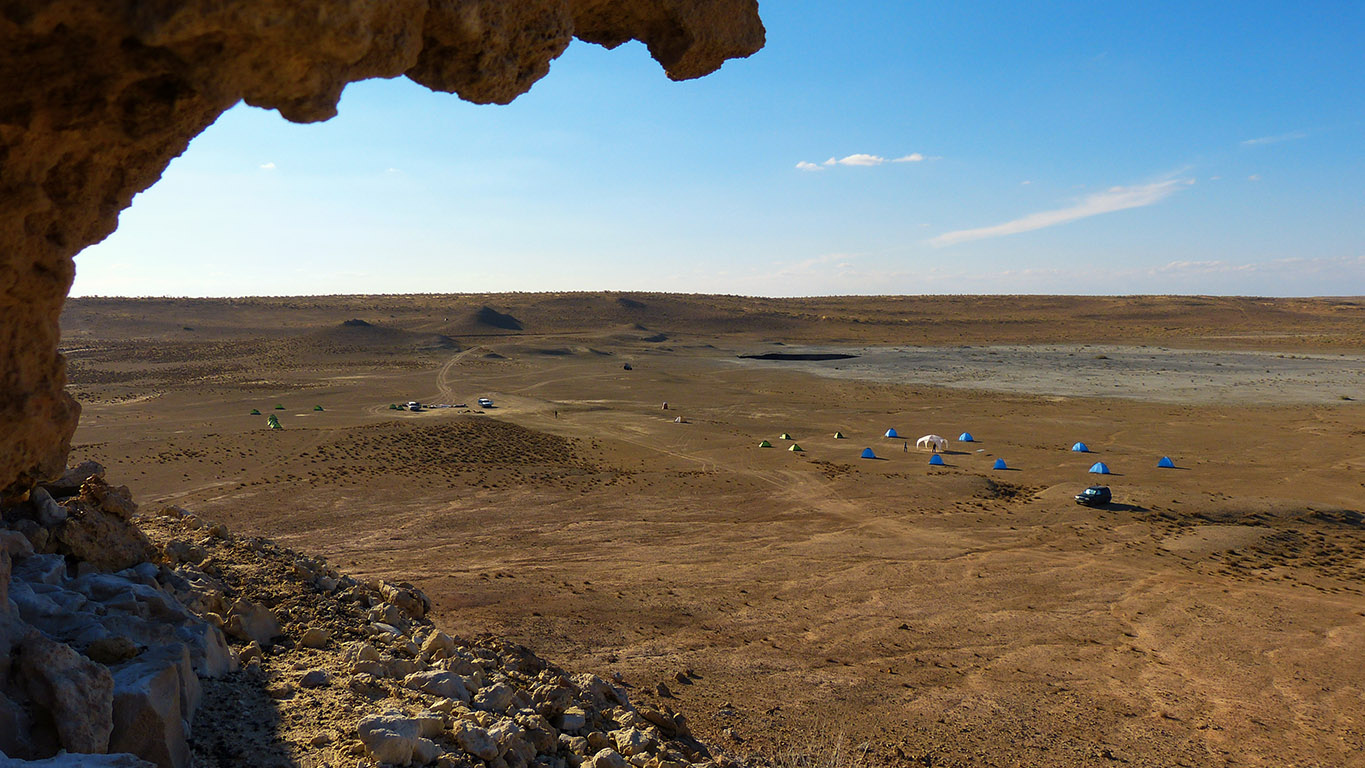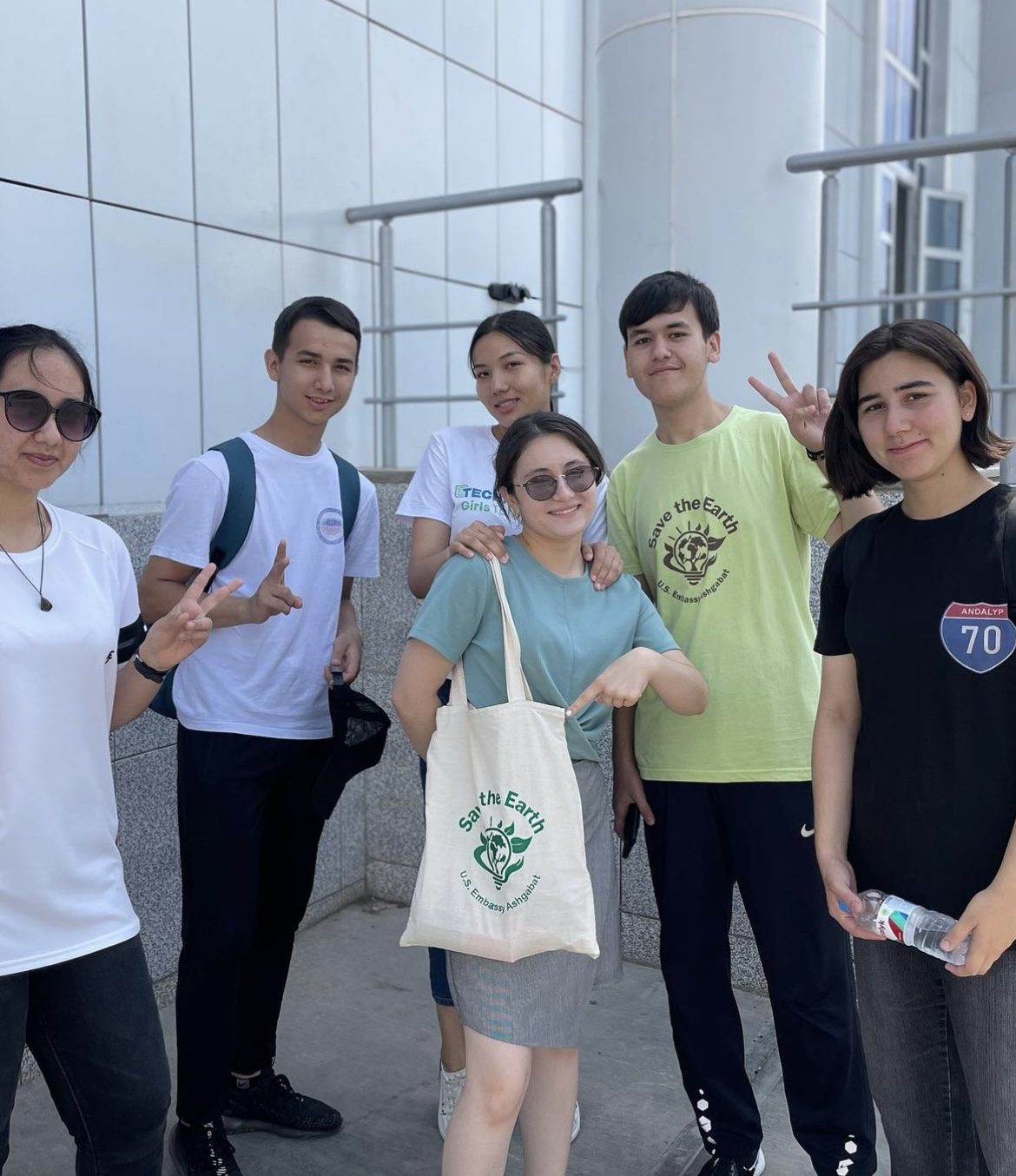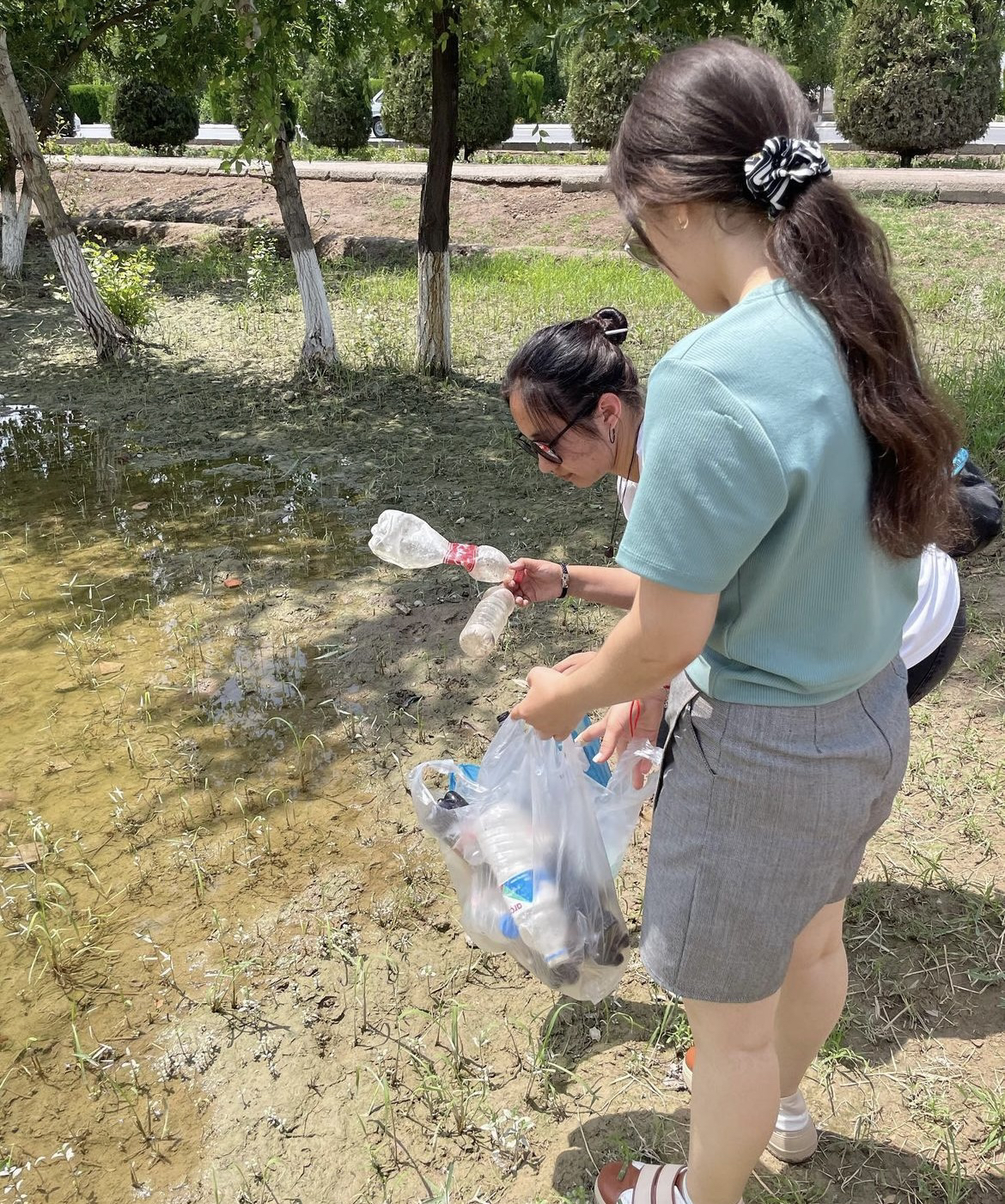Turkmenistan Chapter
Salam we howaý hoş geldiňiz! This is the Turkmenistan chapter of Education4Earth, where we are primarily located in Ashgabat, the capital city, and the Lebap region. We focus on environmental challenges in these two places-- here’s a little more about us!

Environmental Education Program
Our version of this program focuses on fundamental concepts in science and language to better understand our local challenges, specifically desertification and plastics pollution. The science portion focuses on biology, chemistry, and environmental science, all of which are necessary to gaining a deeper understanding of our local issues. In our biology course, for instance, we concentrate on evolution and adaptation, some of the major historical events in evolutionary history (big six mass extinctions), as well as reflect on how these lessons can help us understand the current mass extinction we are in. Members also teach students how interactions between species can be applied in farms (which is a large industry here in Turkmenistan) so that they can be run more sustainably.
The chemistry course follows two pathways-- a more advanced level taught by US members, and a simpler level taught by Turkmen members. Each of these pathways focuses on fundamental chemistry concepts, providing students with the basis to better understand air pollution and the foundation for atmospheric chemistry as a career path.
Our environmental science course is an extension of some of the biology course concepts. This incorporates some ideas in ecology, including population structures, dynamics, and species interactions. These concepts are then understood in the context of Turkmenistan, for instance, how could population growth impact different aspects of the economy, as seen in Japan? Beyond ecology and biology, we discuss how economic conditions and cultural factors contribute to the extensive littering of plastics through sharing our personal experiences.

In the language portion, we focus on teaching english. This is important because it isn’t taught in school, yet Turkmens depend on it for a better understanding of events/developments around the world. Members also teach writing courses, in which students apply the newly learned English language concepts and vocabulary. We currently have 124 members and 208 students being taught in this chapter.
Long-Term Projects
Our projects focus on addressing the major environmental challenges we face in Turkmenistan-- plastics pollution and desertification. To address the plastics pollution issue, we organize monthly cleanups with leaders, members, students, and local volunteers, centered around Ashgabat and the Lebap region. Furthermore, we have held a nature literature and photography project where students write about their personal experiences with environmental challenges in their community and what they did to either learn more about them, or do something to help address them. Some of the most notable, individual projects were an app called “Nature” that provides local residents with information about upcoming environmental group conferences, events, and activities, as well as speeches given to hundreds of classmates to share local challenges. We helped cultivate over 300 community-led projects during this initiative. Beyond this, we are currently planning a sustainable fashion event to showcase upcycled clothes, as well as the “ReMade” vlog project that showcases students’ own, homemade products made up of unused goods.
